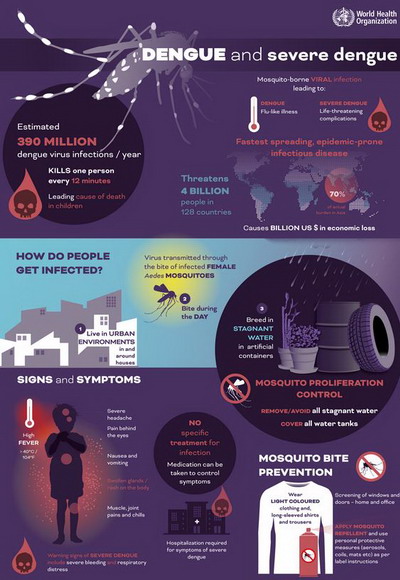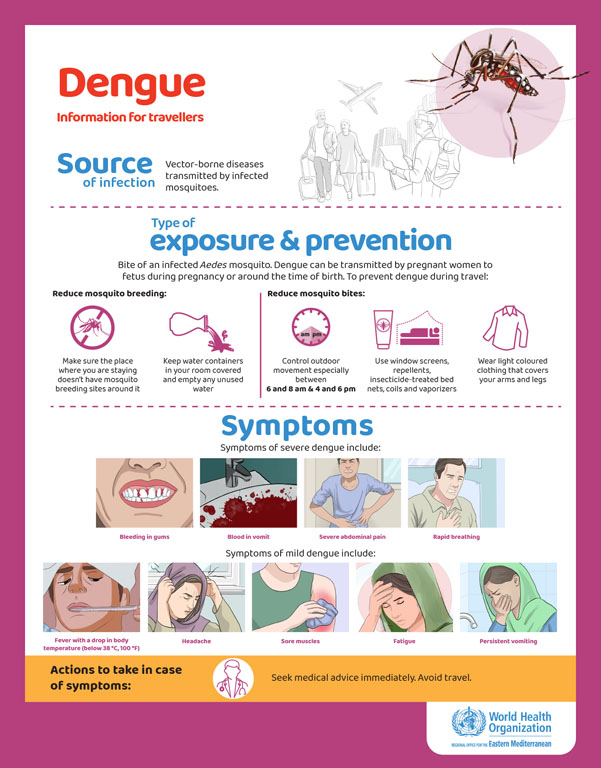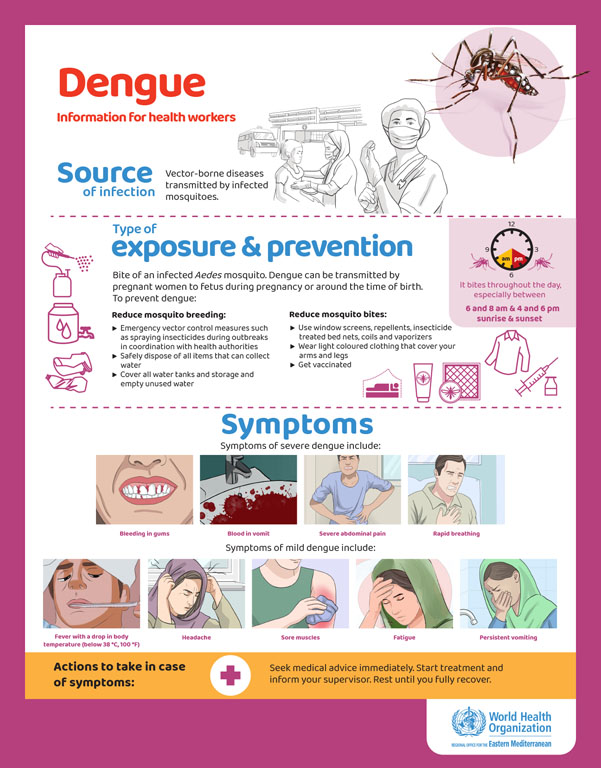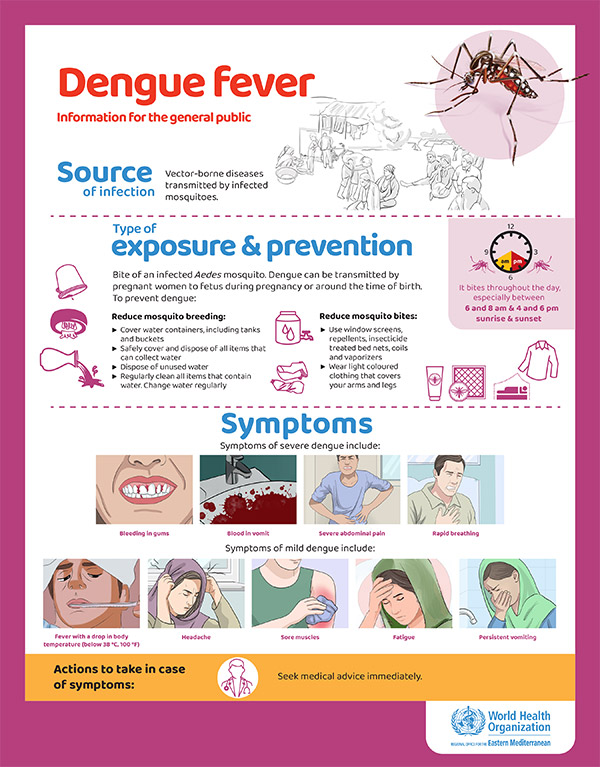 An Ae. aegypti mosquito, one of the primary vectors for the transmission of dengue fever around the world. Photo: Ian Jabobs
An Ae. aegypti mosquito, one of the primary vectors for the transmission of dengue fever around the world. Photo: Ian Jabobs
 Click to expandDengue is a mosquito-borne viral disease that is transmitted between humans by Aedes mosquitoes. The disease manifests as flu-like illness with symptoms including high fever, headache, vomiting, muscle and joint pains, and a characteristic skin rash. Occasionally it develops into a potentially lethal complication called severe dengue. Severe dengue is a leading cause of hospitalization and death among children in some Asian and Latin American countries.
Click to expandDengue is a mosquito-borne viral disease that is transmitted between humans by Aedes mosquitoes. The disease manifests as flu-like illness with symptoms including high fever, headache, vomiting, muscle and joint pains, and a characteristic skin rash. Occasionally it develops into a potentially lethal complication called severe dengue. Severe dengue is a leading cause of hospitalization and death among children in some Asian and Latin American countries.
Dengue is currently the most widely spread mosquito-borne disease in WHO's Eastern Mediterranean Region. Reports of dengue and severe dengue epidemics in the Region started in 1998 and have increased in frequency and spread ever since, with outbreaks occurring in Djibouti, Egypt, Oman, Pakistan, Saudi Arabia, Somalia, Sudan, and Yemen. Serological evidence of circulation of dengue fever has also been reported from Jordan. All the 4 serotypes of dengue virus have been known to have circulated in the Region during these outbreaks.
A vaccine with varying level of effectiveness for each of the 4 dengue viruses is available (and others are being researched), and WHO has issued a conditional recommendation on the use of the vaccine for highly endemic areas. Once infection has occurred, there is no specific treatment for dengue fever, although for severe dengue early detection and access to proper medical care can reduce the case-fatality rate significantly (below 1%). Although recovery from infection by one of the serotypes provides lifelong immunity against it, cross-immunity is only partial and subsequent infections by other serotypes increase the risk of developing severe dengue.
WHO efforts in reducing dengue focus on supporting countries’ efforts regarding surveillance, case management, and technical policy and guideline formulation.





